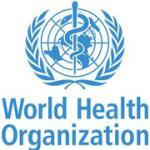I wrote an article several months ago about a controversial study suggesting that red meat wasn’t all that bad. You can find it here.
guidelines
In the last few weeks, the World Health Organization (WHO), released its first guidelines to digital healthcare. It is modest in its recommendations, building on where we currently are to where we might go.
In my previous life as a surgeon, one of my achievements was bringing a national quality improvement program to my community hospital.
Randomized clinical trials remain the “gold-standard” evidence in making standards, that is the creation of clinical guidelines. They are a form of best practice creating a “floor” for the care patients receive.
John Ioannidis is the academic leading the charge to bring reproducibility and integrity back to some of our scientific publications.
Fractures due to the declining health of our bones places a substantial burden on patients, at one year 60% require assistance with daily living, 40% are unable to walk independently, and 20-30% are dead.








